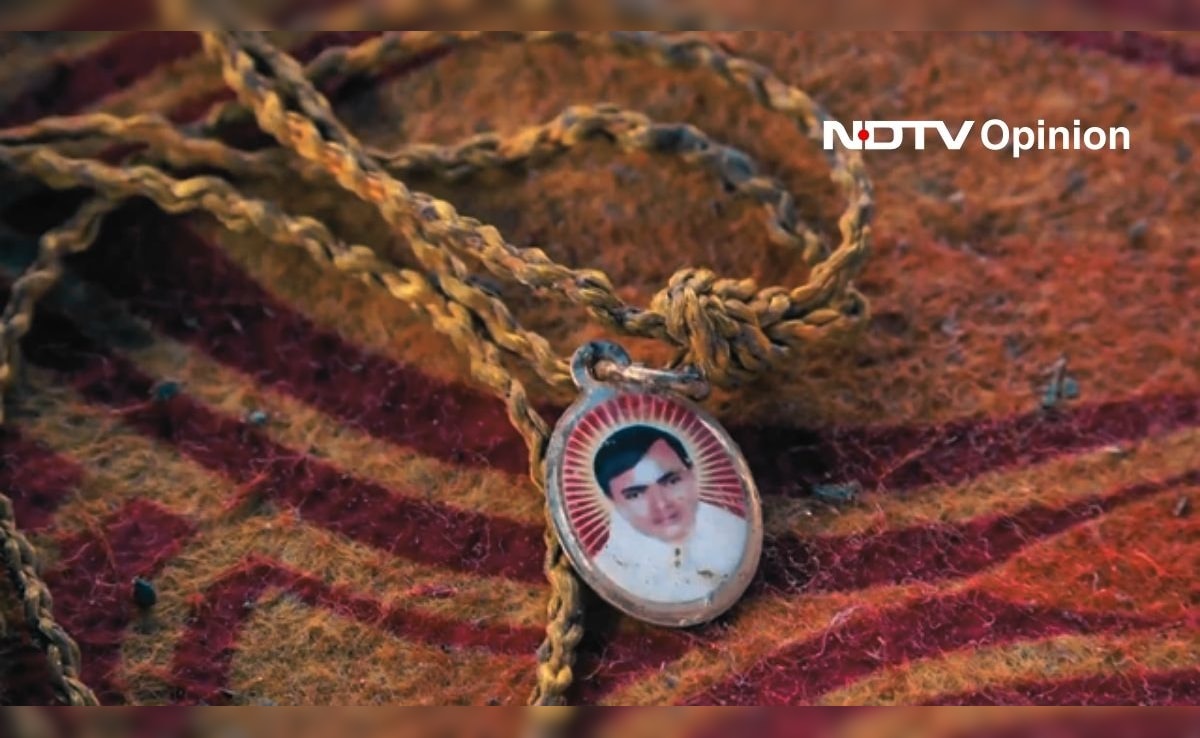
The day Baba died, my childhood breathed its last, too. I was in Benares, shooting a documentary, when a text message from my mother on the family group shattered my sense of invincibility. Baba was a superhero who made me, and many others, believe that we were neither our jobs nor our social (marital) status. We, the long train of kids, competing for Baba's attention, would often joke about much later in life how our bosses and spouses wondered about our sense of righteousness—something that fuelled the tendency to live life on our terms—free of fear or favour. Baba addressed the next-door tea hawker in our small town with his full name. He addressed men he asked for directions from as “Shriman”. He made everyone feel like they mattered.
Also Read | Poison Sprayed At Hathras Event Led To Stampede, Claims Godman's Lawyer
My grandfather, Baba, was a man that everyone needs in their life. Someone who makes them believe in the justness of cosmic logic. Someone who sees and hears them. Someone who can make the wrongs right. And this need is precisely what people like Baba Narayan Hari, also known as Saakar Vishwa Hari 'Bhole Baba', prey on. The reason I have jostled with my rational mind to expose an utterly private, raw, memory for all and sundry to prey on is because I can only make sense of the Hathras tragedy—a stampede at a satsang that has already claimed at least 121 lives—through decoding this need. It doesn't help my rational mind that the geographical region in the centre of this horrible tragedy is barely half an hour from where I was born. It is possible that at least one of the deceased was known to my family.
A Mahatma And A Murder
Ironically, many ‘babas' were known to my Baba. At least in their non-baba lives. I have a vague memory of a man who took care of me as a child but became a ‘mahatma' later. No, there was nothing Gandhian about this Mahatma. A murder investigation led to this transformation. The man just disappeared one day. When he emerged again, it was with all the ritualistic bells and whistles.
I have another memory to tap into at this moment. I once participated in a dance competition and won the second prize (I'll kill to win a dance award today). The song was “Aaj phir jeene ki tamanna hai…” from Dev Anand-starrer Guide. The film delineates the trajectory of a charlatan, Raju ‘Guide', becoming a self-sacrificing godman. Raju Guide didn't sign up for being a holy man, a performer of miracles. He was destined to be so. In his beginning as a sadhu, was his end. Unlike real life, though, the film was driven by a sense of poetic justice. Raju Guide had to die because of his devotees' belief in his superpowers. In reality, it is the believers who pay the price for belief.
Also Read | After Losing Wife And Son In Stampede, Man Has A Question For 'Bhole Baba'
Men and women claiming to have direct access to god—of whichever kind—are nothing new or peculiar. The claim of divinity is one of the oldest, most effective tricks to avert reproach and responsibility. It is common to all civilisations. Nobody questions those who claim to be doing god's work. Those who dare meet their fate.
God Is Perfect
Since we in India claim ourselves to be the guru of all civilisations, a quick note on how our belief business goes. Unlike the Greco-Roman gods, who are seen as fickle-minded and driven by similar passions that govern the mortals, our gods are largely seen as just and benevolent. They do the right thing. By extension, then, their ‘conduits' or representatives are also seen as doing the right things. No matter how wrong they are. Questioning them becomes questioning a just god.
Looking westward, “All mythology opens with demigods”, writes Ralph Waldo Emerson in Representative Men. In the mythology of our times, godmen are the demigods, the superhumans. In etymology and conceptualisation, these alleged superhumans come from Goethe's “übermenschen,” Nietzsche's “übermensch,” Shaw's “superman,” etc. Godmen see and thus elevate the unseen and the marginalised. They also see and alleviate the fears of the seen and the mainstreamed. They signify hope. In the modern mythologies, this is the role of comic book superheroes.
Also Read | Hathras Stampede Puts Spotlight On India's Craze For Godmen
The "Supes"
Commenting on his assumption as the new Superman more than a decade ago, actor Henry Cavill commented, “India has a rich mythology and they're both (Superman and the heroes of Hindu mythology) rooted in the same thing - hope and goodness”. Unfortunately, the very hope and goodness of Indian spiritual traditions has been long exploited by charlatans pretending to be superheroes. In that sense, these sundry babas and matas are closer to what the OTT series The Boys has conceptualised: the “Supes”. The Supes have superpowers, they have infiltrated all the structures of power, they control the minds of the masses, and they are self-serving. Their days, the series tends to suggest, however, are numbered. What about the babas?
(Nishtha Gautam is a Delhi-based author and academic.)
Disclaimer: These are the personal opinions of the author


